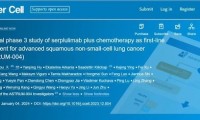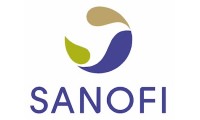-
NOVARTIS Cosentyx® (stuccizumab) approved in China for new indication in psoriatic arthritis
- Source: drugdu
- 114
- January 11, 2024
-
J&J Joins the Cancer ADC Dealmaking Spree With $2B Ambrx Acquisition
- Source: drugdu
- 137
- January 10, 2024
-
As cancer players jump head-first into ADC field, Novartis CEO explains how he’s resisted the temptation
- Source: drugdu
- 90
- January 10, 2024
-
With Phase 3 Studies Ongoing in Bladder Cancer, CG Oncology Plots Course for IPO
- Source: drugdu
- 83
- January 9, 2024
-
Invivyd Seeks EUA for Monoclonal Antibody Designed to Prevent COVID-19 in Immunocompromised Individuals
- Source: drugdu
- 112
- January 8, 2024
-
HANSIZHUANG Combined with Chemotherapy for the First-line Treatment of sqNSCLC
- Source: drugdu
- 86
- January 7, 2024
-
AI Tool Rapidly Analyzes Gene Activities in Medical Images to Highlight Hidden Cancers
- Source: drugdu
- 93
- January 5, 2024
-
FDA Fast Tracks Candel Therapeutics’ Novel Treatment for Pancreatic Ductal Adenocarcinoma
- Source: drugdu
- 175
- January 5, 2024
-
Beyfortus® Approved in China for the Prevention of Respiratory Syncytial Virus Infections in Infants
- Source: drugdu
- 127
- January 4, 2024
your submission has already been received.
OK
Subscribe
Please enter a valid Email address!
Submit
The most relevant industry news & insight will be sent to you every two weeks.












